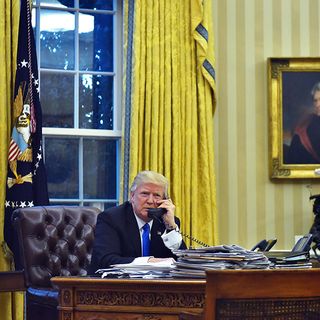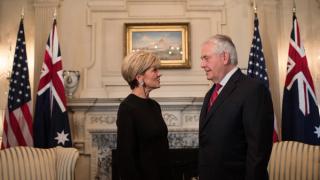As with all things in the Trump administration, it’s unlikely alliance management will be linear, and there are some concerning open questions. Most pressing: is the chaos emanating from the White House the teething pains of a new administration – though unlike any we have seen – or is this an administration in crisis? Will the new national security adviser, H.R. McMaster, manage to calm a National Security Council in disarray and institute an orderly policy process? How will McMaster affect the competing centres of power within the White House and the access secretaries Tillerson and Mattis have to the President, and can key positions in the NSC, State and Defence be filled quickly?
As for Australia, these initial indications of the Trump administration’s alliance management have been instructive. The fundamentals of ANZUS are robust enough to withstand the phone call – which is good, because ANZUS remains critically important to Australia’s defence, at a time of regional military modernisation and soaring defence technology costs. The White House would also have seen the extraordinary groundswell of American popular and Congressional support for Australia and ANZUS after the call: a timely reminder not just of ANZUS’ history but its contemporary strategic importance.
Alliance management and the Trump administration

Canberra is now adapting to the profoundly changed circumstances by working the multiple tracks of the bilateral relationship, including traditional channels with the State Department, the Department of Defense, Vice President Pence’s office, and Congress. Foreign Minister Julie Bishop’s meetings with the vice president and Secretary Tillerson were important opportunities to fortify the relationship, get more insight into US policy, and provide Australia’s views on critical issues. These below-leaders’ level channels will likely continue to be a focus for Canberra; leaders’ level relations can be built when Prime Minister Turnbull visits the US. It’s also a good time to utilise other channels of communication, including business, technology, and cultural/entertainment contacts.
The early, frenzied weeks of the Trump administration will surely give added impetus to Canberra’s push to shore up other security partnerships, including with Japan, Singapore, India and South Korea, as part of the broader regional web of bilateral, trilateral and multilateral security linkages in the face of questions about America’s ongoing regional role.
Adapting to the Trump administration and its alliance management will require adroit navigation and a strong sense of Australia’s national interests.






